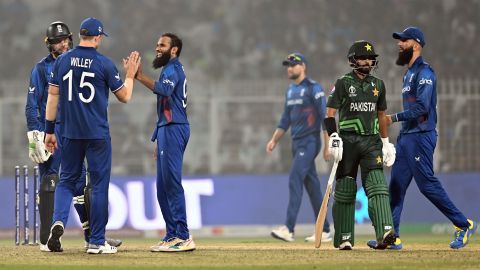
Pakistan cricket back to the drawing board? (ASHIS RAY FROM KOLKATA) (Image Source: IANS)
ODI World Cup: It was a battle between two former champions, but both of whom who had performed well below par in the 2023 ODI World Cup. Many a pundit tipped them as semifinalists.
Now merely playing for pride, England beat Pakistan by 93 runs to finish seventh in the league standings. The latter, notwithstanding their defeat, remained in fifth place.
Winning the toss was an advantage for England, as it has been in matches at this venue in the tournament. The ball has tended to respond to spin in the second innings, thereby rendering it more difficult for batting for the chasing unit.

